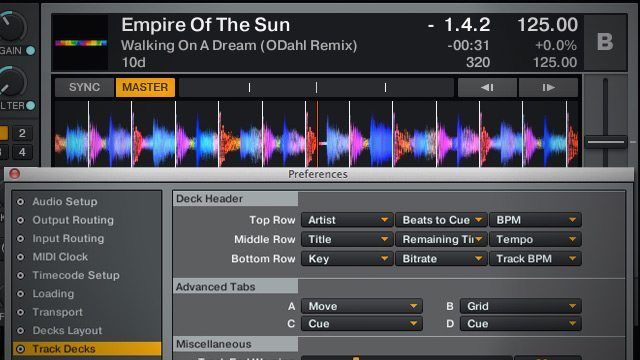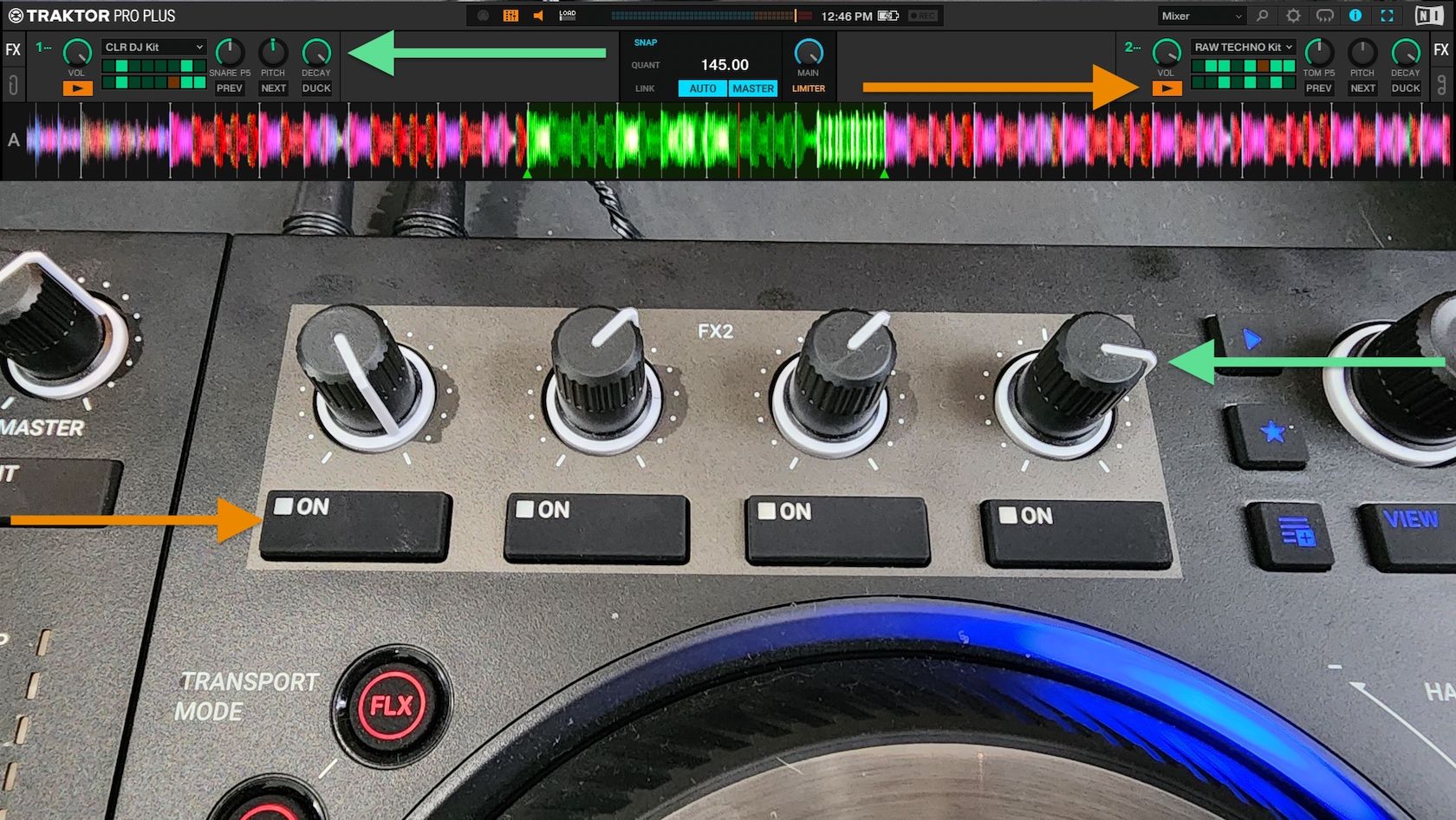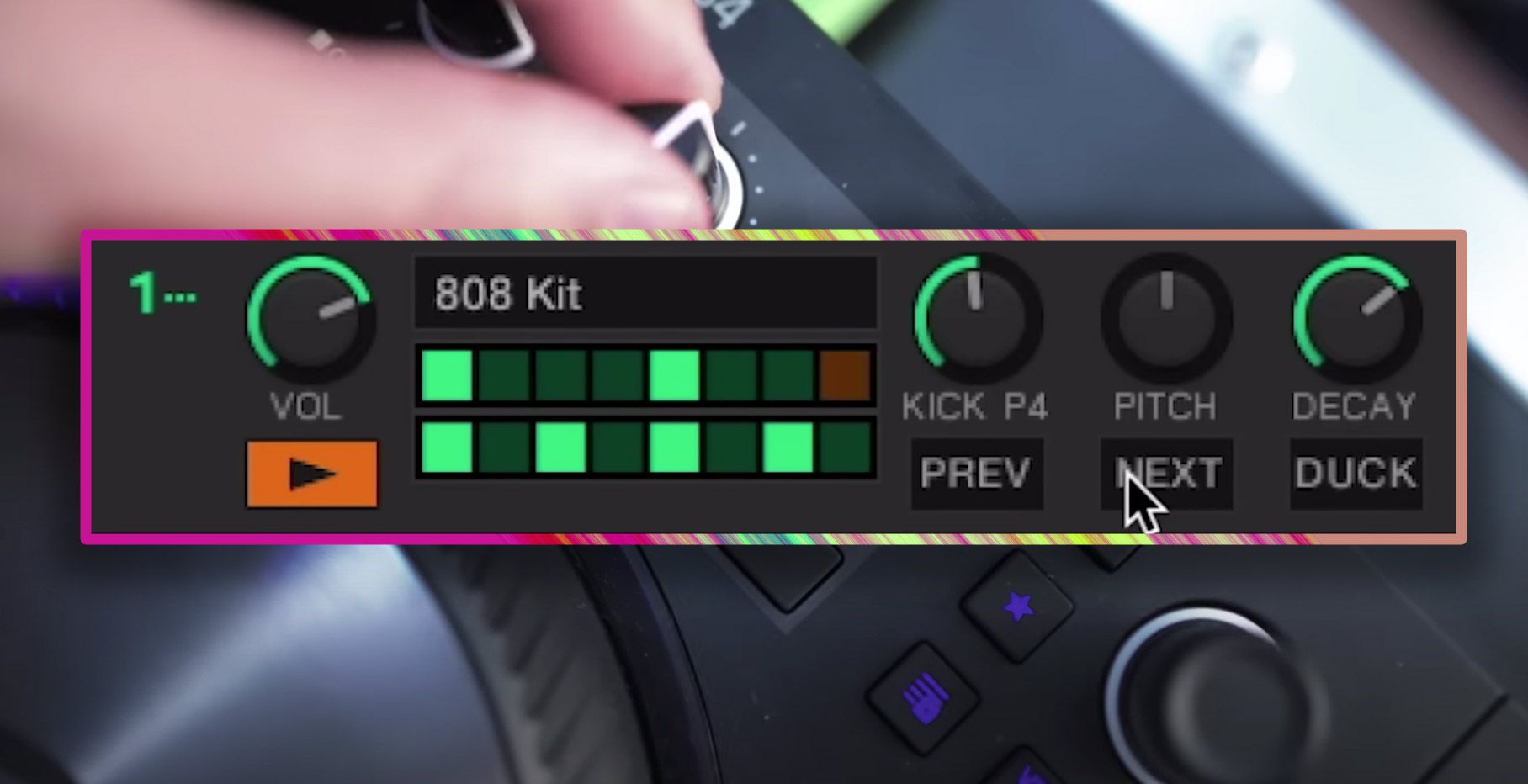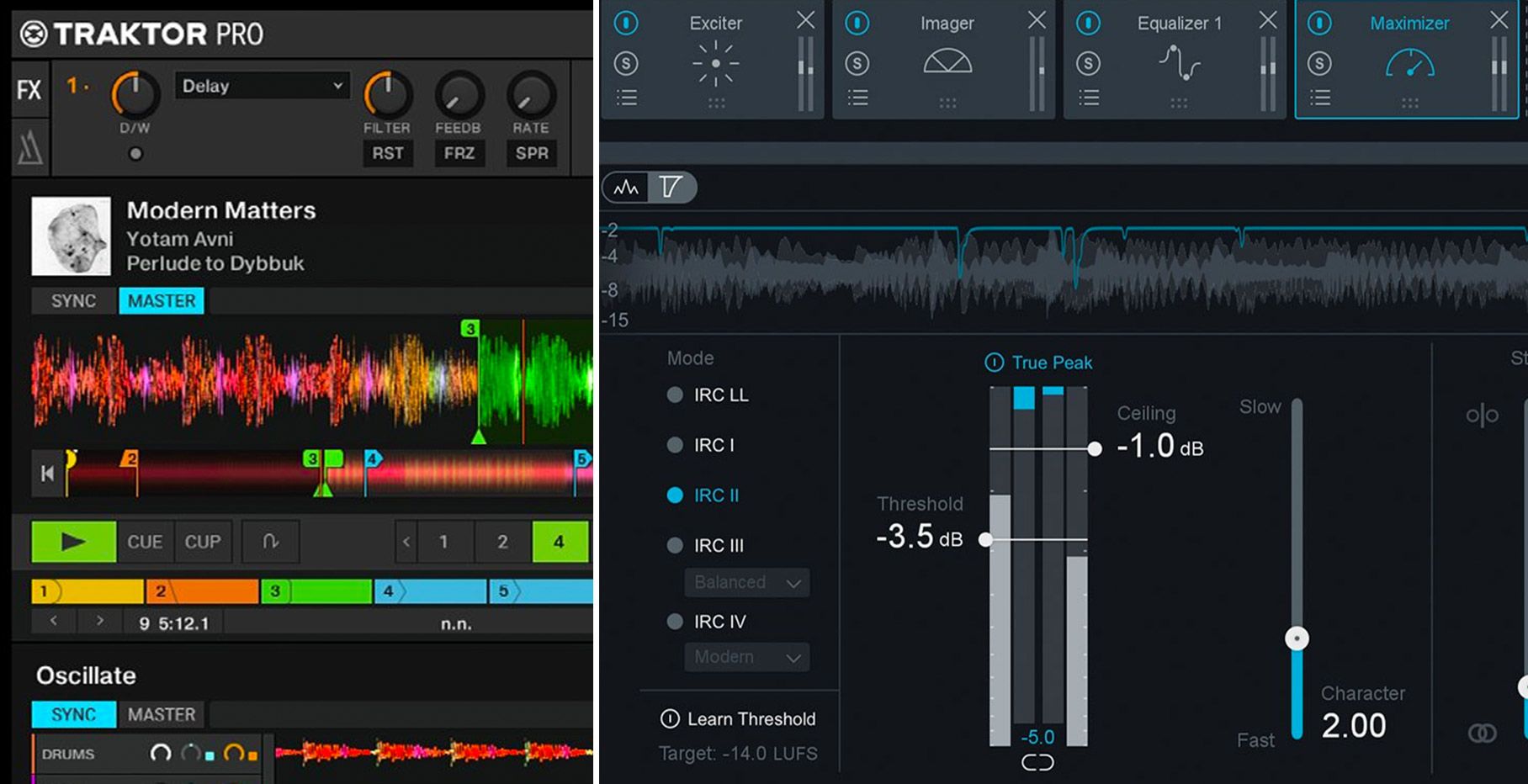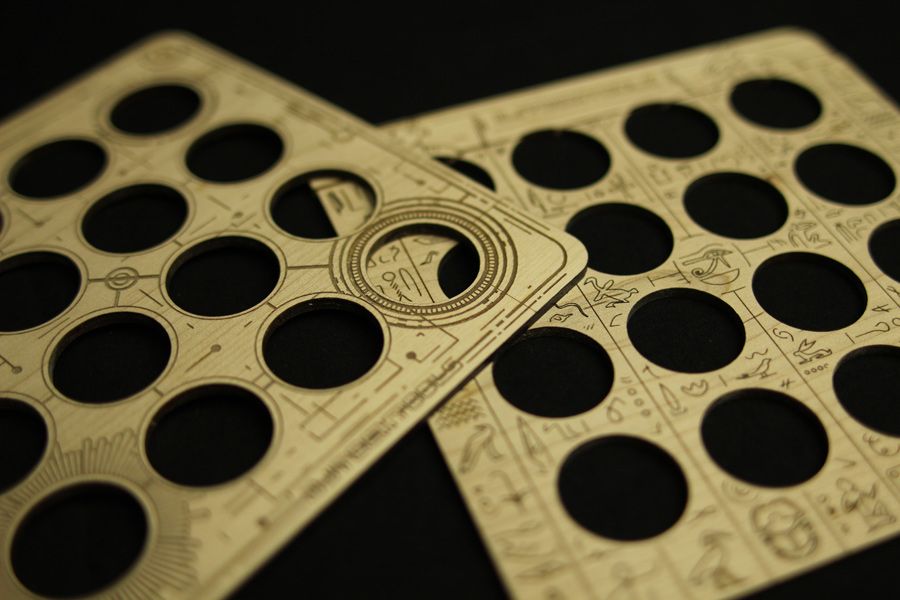One of the major advantages of modern DJ software solutions is the pure amount of information available to you about a playing track – from BPM, to key, to beats left until the next cue point. In Traktor, the deck headers are completely customizable. In today’s video, learn how they can be changed and why you might want to change them in this new guest video from forum member peedot.
HEADING UP THE DECKS
We might sound like we’re beating a dead horse here, but remember that what works best as deck headers really depends on what your workflow and DJ style and music library are like. Here’s a few ideas to get you thinking about changing your settings:
- DJs with large and/or old libraries (wedding DJs, we’re looking at you) might always want to keep Bitrate showing in the deck header to insure they’re not playing any 128kbps Napster downloads.
- DJs who have controllers with pitch faders might want to always show Pitchfader Range in order to know exactly what those sliders are capable of at any given time.
- Comments and other ID3 tags with notes about the mix work best in the left hand slots (especially bottom left) as they’re longer and will show more text

YOUR TRACK DECKS, YOUR RULES. MOSTLY.
It’s worth noting that not every ID3 tag is allowed to be shown in the deck headers – so if you’re looking to display the composer or sample rate of the track, you’re out of luck. This actually becomes less trivial for DJs who like to use features like iTunes star ratings in marking their tracks – although some well-curated smart playlists are a good workaround.
That being said, we’ve seen some creative uses of the normally empty comment fields in track headers, such as:
- Displaying DJ notation
- Key and energy detection from an external analysis software
- Writing a favorite song or sample to mix into / with the current track
- Sub-genre comments (Editor’s tip: I mark songs for my trap podcast with notes like “dark trap” “chill trap” “hard trap” )
What information is critical enough to be in the headers of your playing decks – or does it not even really matter to you? Let us know in the comments.


